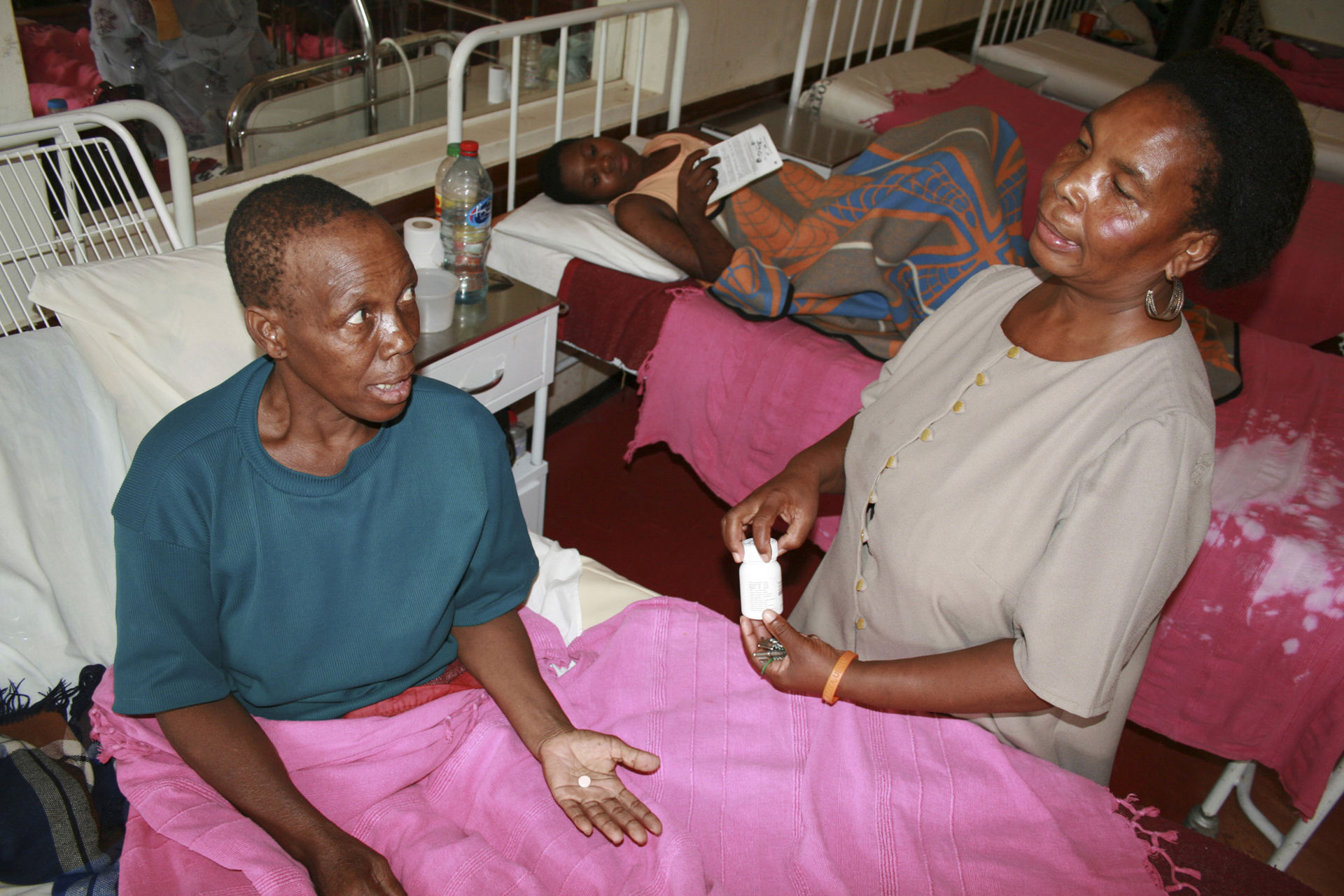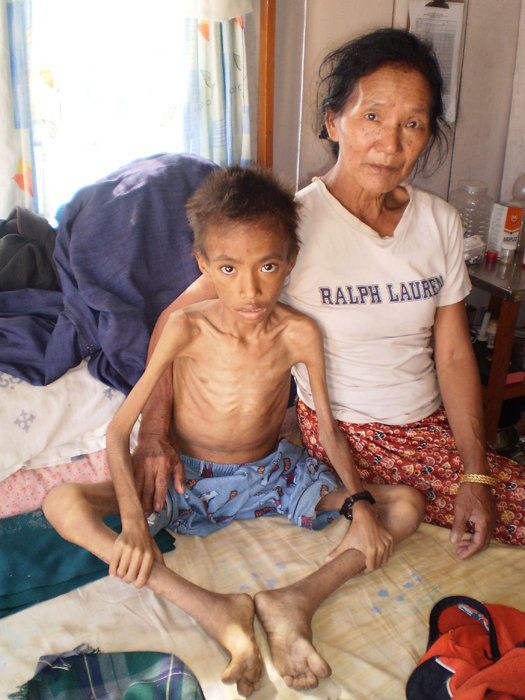The sound of coughing fills the short passageway outside the female ward of
Mampho Ratsese, aged 57, is one of the co-infected with TB and HIV patients in ward and one of the most recent patients seeking treatment. Last month, when she first came to
"There are two types of TB. The most common, is pulmonary TB, mainly affecting only the lungs. And the other type is extra-pulmonary TB, which can be found in all other organs of the body (other than lungs). The most common extra-pulmonary TB infection is located in the pleural cavity. Other forms are found in lymph nodes, abdomen, meninges of the brain, and joints or bones. Extra-pulmonary TB is usually a more severe type of TB and sometimes patients need to be admitted to hospital. Anti-tuberculosis treatment can take up to nine to 12 months in severe cases," explains Dr. Laura Trivino Duran who heads up the MSF TB programme in
Mampho is among the more than half of
For Mampho these are not just statistics, but cold, hard reality. In 2007 she tested HIV positive, a year after her husband died (possibly due to an HIV/AIDS related complications). The mother of six children has already lost two children due to TB. In 2006 lay counsellors, often HIV and TB-HIV patients, were recruited and trained to be able to give advice on the treatment regimens and adherence support.
"It has been difficult ever since my husband died. He was the breadwinner. But now, during my treatment in the hospital, food is scarce. There’s no one to seek help with. I even add burden to my daughter who is already struggling with her own family," Mampho says.
To relieve the pressure of the fluid build-up in Mampho’s pleural cavity where the extra-pulmonary TB infection is located, doctors have inserted a tube into her chest to extract the fluid. While she initially appeared alert and resilient three days before, Mampho now appears frail and weak. But she still clings to the hope of regaining her health.
"I don’t yet understand fully what TB means and what it is all about. All I know is that TB is transmitted by air and from others. Despite my current condition, I still have hope. This is not the worst thing I have been through. The death of my husband was the saddest and most difficult of all times I went through as no one can look after me. But I remain hopeful," says Mampho.
MSF has been working in Lesotho since 2006, pioneering decentralisation of access to health care by employing strategies such as: "task-shifting" to empower nurses makes nurse-driven ART and TB initiation possible and also creates a way to overcome the acute shortage of doctors in the country. This novel strategy allows full integration of HIV and TB services at the primary healthcare point of care. MSF is primarily providing support to Scott Hospital in Morija, and to 14 clinics in Mafeteng and



